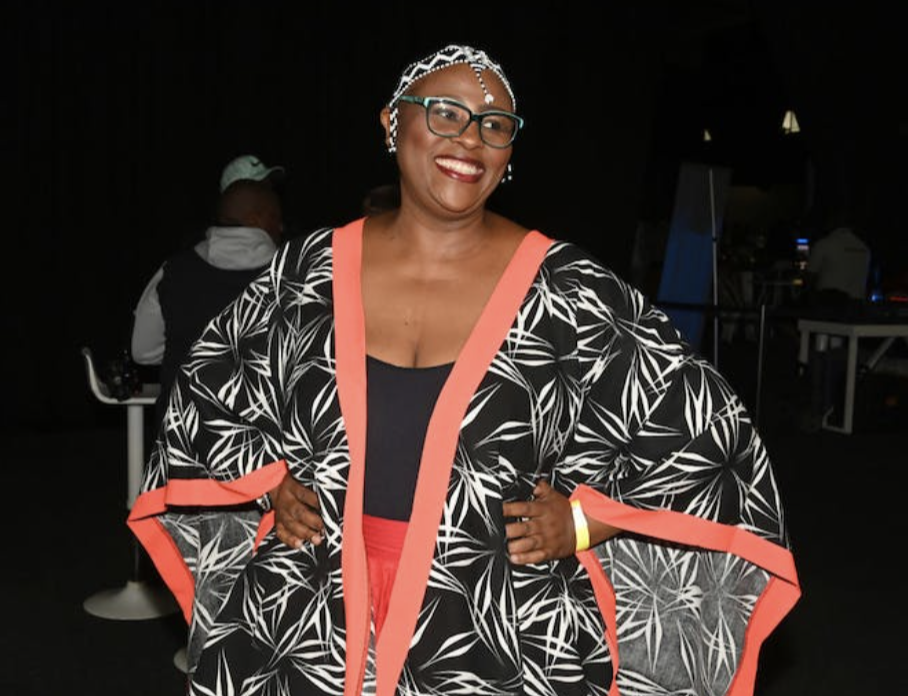ARTS, STYLE & ENTERTAINMENT
This is YOUR lifestyle gallery – of what is new and what is happening in the U.S. And the Black World, not excluding Africa. For this section if you have any news we should know about – let us know at: [email protected]

By Nomfundo Xaluva
We have no idea what we have just lost. None. Prolific singer, composer and educator Gloria Bosman, who passed away on 14 March 2023, was someone I could only describe as South Africa’s most interactive artistic archive. Interactive not because she housed so much knowledge about the unique relationship between music and South Africans as a people, but also because she transmitted this knowledge to others at every opportunity. If you ever found yourself in the same room with Gloria, you were in for a lesson of a lifetime.
As a trained jazz vocalist, songwriter and senior lecturer, I have been preoccupied with studying women in the South African jazz tradition. I was at first reluctant to write about Gloria as I didn’t consider her and I to have been “close”.
I’ve only ever written about South African musician and activist Miriam Makeba as a lifelong subject of my research, as well as South African singer and cultural activist Sibongile Khumalo, who was a mother to me. Perhaps I lack the range to write about others, I told myself. But a friend and colleague convinced me when she said, “You may not have been close, but you were there.” This I could not deny: I was witness to Gloria’s life and work.
Besides being vocalists, we shared something else in common. We had a deep and close relationship with the late Sibongile Khumalo, who always affectionately referred to Gloria by her Xhosa name, uNosikhumbuzo. I did not do this as it would have been over-familiar.
Gloria Bosman was the quintessential example of artistic diversity, not only in the multiplicity of genres she performed in but in her uncanny ability to transform any space or gathering into a teaching moment.
Vocal craftsman
In my days as a young jazz singing student, Gloria’s album Stop and Think (2002) was a staple of my study recordings at a time when South African repertoire was not largely prescribed in the academic program. This album – alongside Khumalo’s Live at the Market Theatre (1998) and South African jazz singer Judith Sephuma’s A Cry, A Smile, A Dance (2001) – served as profound entry points to the unique attributes of South African jazz singing. I was struck by Gloria’s impeccable intonation and a voice I was convinced had never met a wrong note.
Gloria was trained as an opera singer at the Tshwane University of Technology from 1994 to 1996. Her voice had a husk that glided effortlessly over the blues characterized by her cheeky style of diction. She was a marvel to listen to. Her vocal range was one every jazz singer dreams of, one that transitions between registers without so much as a crackle. She could sing everything. It was no wonder she moved between jazz, pop, rock, classical, cabaret and gospel with ease. She meticulously applied appropriate vocal techniques to the different styles of music with a level of detail only a craftsman could execute.

Gloria Bosman in 2022. Oupa Bopape/Gallo Images via Getty Images
In the academy
In 2021, Gloria enrolled at the University of Cape Town’s South African College of Music to study jazz. She vehemently declined to start at postgraduate level, which she could have done because she had already studied music and had an expansive artistic footprint both locally and internationally.
I had the honor of teaching her jazz improvisation in a class where most if not all her classmates were less than half her age. They all adored her. Carly Barendilla said: “Gloria will never understand the impact she has had in my life. She encouraged me and reminded me that there’s a space for me in this world.” Fellow classmate Marzia Barry echoed this: “We were starstruck at first but by the end of the first class, we were all laughing at the stories Gloria shared with us.”
Gloria was incredibly generous with her knowledge and always offered support to her fellow classmates, often engaging them in debates that were enriching and eye-opening to them as a younger generation. While I was the lecturer, she was the teacher. She was never insecure, and she most certainly didn’t indulge any kind of imposter syndrome. She became a part of the community of young musicians, often taking part in jam sessions around the city.
‘We wear the mask’
Dunbar’s works celebrated all of humanity.
He turned the plantation tradition on its head by using dialect to not only offer critical social commentary, as in his poem “When Malindy Sings,” but also to portray oft-ignored humanity, as in “When Dey ‘Listed Colored Soldiers.”
Dunbar’s works provide historical snapshots into the everyday lives of working-class Black Americans.
None were as poignant as his poem “We Wear the Mask.”
“We wear the mask that grins and lies, It hides our cheeks and shades our eyes, this debt we pay to human guile; With torn and bleeding hearts we smile, And mouth with myriad subtleties.”
Newsletter
Subscribe to our bi-weekly newsletter and be the first to Receive New Updates.
Your comments, ideas, and thoughts matter.
Drop us a line: